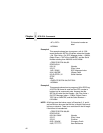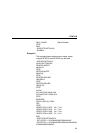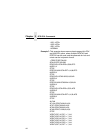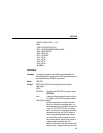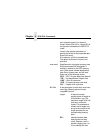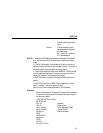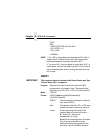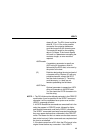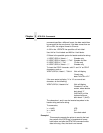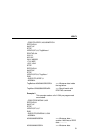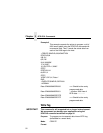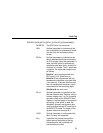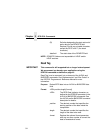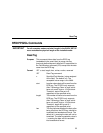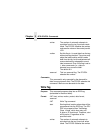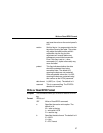
Chapter 2 RFID PGL Commands
50
command specifies a different format, the data would then
be converted to the new format. If the data comes from an
AFn or BFn, the original format is S format.
4. 432 in the ~CREATE line specifies a 6 inch label.
Use 144 for 2 inch labels and 288 for 4 inch labels.
5. Below is the possible syntax for header and trailer string:
1. VERIFY;DF2;H;*Head = * //Header only
2. VERIFY;DF2;H;*Head = *; *Tail* //Header & trailer
3. VERIFY;DF2;H;**;*Tail* //Trailer only
4. VERIFY;DF2;H;*Head = *;** //Header only
To insert the CR/LF character, add “\r” and “\n” as CR/LF
characters, such as
VERIFY;DF2;H;*Head=*; *Tail\r\n* //this will display
“Head=<tag
data>Tail<CR><LF>”
If the user wants to display “\r” or “\n” as normal text
character, do the following:
VERIFY;DF2;H;*Header\\r\\n* //this will display
“Header\r\n” on the
screen, where double
back slash “\\”
(0x5C0x5C) will be
replaced with one
back slash “\” (0x5C).
The characters \r and \n can be inserted anywhere in the
header string and trailer string.
To summarize,
\r –> 0x0D //CR
\n –> 0x0A //LF
\\ –> \ //one back slash
Example 1
This example requests the printer to send to the host
the content of the RFID tag, in hexadecimal format,
both before and after the RFWTAG command writes
data to the tag. Also, the label is not moved.



